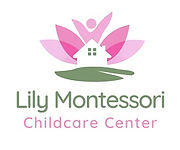Embracing the Montessori Method: Nurturing Independence and Lifelong Learning
- Lily Montessori
- Jun 8, 2023
- 2 min read
Updated: Aug 27, 2023
In the realm of early childhood education, the Montessori method stands as a beacon of progressive and child-centered approaches. With its emphasis on fostering independence, self-directed learning, and hands-on exploration, Montessori techniques have revolutionized the way we view education. Today, we delve into the core principles of the Montessori method and explore the transformative impact it has on children's development and their lifelong love for learning.
Creating a Prepared Environment: At the heart of the Montessori approach lies the concept of a prepared environment. Montessori classrooms are thoughtfully arranged, with engaging learning materials carefully displayed at child-friendly heights. This intentional setup allows children to freely explore and choose activities that align with their interests and developmental needs.
Encouraging Self-Directed Learning: One of the key tenets of Montessori education is empowering children to take charge of their learning journey. Through self-directed learning, children are encouraged to follow their natural curiosity, choose their activities, and progress at their own pace. This approach instills a sense of ownership, motivation, and deep engagement in the learning process.
Promoting Independence and Life Skills: Montessori techniques prioritize the development of life skills and independence. From self-care activities like dressing and food preparation to practical life tasks such as cleaning and organizing, children are provided with meaningful opportunities to develop essential skills for daily living. This focus on independence not only fosters confidence but also cultivates a sense of responsibility and self-sufficiency.
Hands-On Learning and Sensorial Exploration: Montessori materials are meticulously designed to provide children with tangible, hands-on experiences that enhance their understanding of abstract concepts. From the iconic Montessori sandpaper letters that introduce phonics to the sensorial materials that refine children's senses, each material serves a specific purpose in promoting exploration, concentration, and cognitive development.
Mixed-Age Classrooms: In Montessori classrooms, children of different ages learn together in a mixed-age environment. This arrangement encourages collaboration, peer learning, and the development of leadership skills. Older children act as role models and mentors, while younger ones benefit from observing and learning from their peers. This dynamic fosters a sense of community, empathy, and social skills.
The Montessori method has stood the test of time, inspiring generations of children to become self-motivated, lifelong learners. By creating an environment that nurtures independence, self-directed learning, and hands-on exploration, Montessori techniques empower children to develop essential life skills, cultivate a love for learning, and embark on a path of personal and academic success. At [Your Montessori Center's Name], we embrace these principles wholeheartedly, guiding children on their own unique journeys of growth and discovery.
Discover the Montessori difference and witness the incredible impact it can have on your child's development. Join us at Lily Montessori Childcare Center and embark on an extraordinary educational journey that celebrates the joy of learning, independence, and limitless possibilities.
_edited.jpg)


Comments